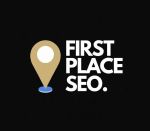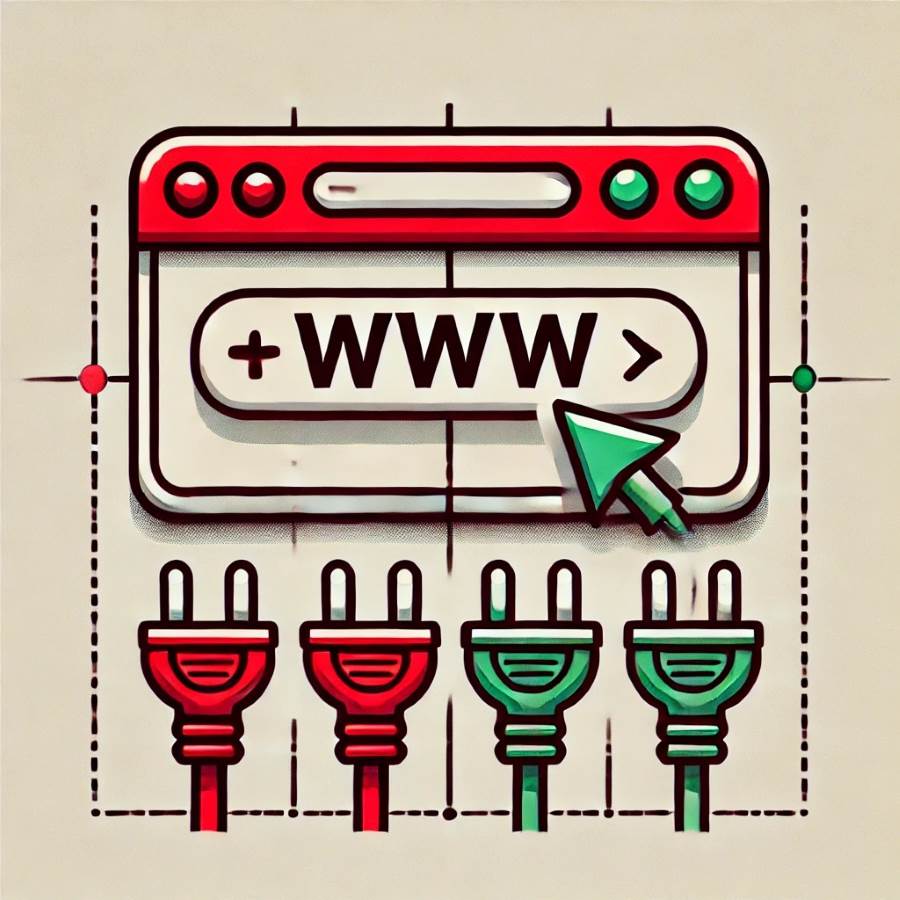Ranking Factors To Look At About Your WordPress Website
1. Are Your Images Slowing Down Your Site?
Uploading high-quality images might seem like a no-brainer when you’re putting together a post or updating your site’s gallery. After all, those crisp images look fantastic, right? But here’s the catch: those large images could be seriously slowing down your site. And when your site is slow, both visitors and search engines take notice.
The answer? Take the time to optimise your images. It may seem like extra work, but resizing your images to the appropriate dimensions and compressing them can make a significant difference. Don’t forget to use filenames and alt text that include relevant keywords. These small changes can lead to faster load times and improved search rankings.
2. Is Your WordPress Theme Working Against You?
It’s tempting to choose a theme that’s packed with features and a striking design. But what if that very theme is the reason your site isn’t performing as well as it could? Not all themes are created with speed and SEO in mind – some are bloated with unnecessary code, while others may not be updated regularly, leaving your site vulnerable to security issues.
The solution? Choose your theme carefully. Look for one that’s lightweight, responsive, and designed with SEO as a priority. And always keep it updated to avoid any security problems. Remember, simplicity often leads to better performance. The less your theme has to load, the faster your site will be.
3. Have You Installed Too Many Plugins?
Plugins are one of WordPress’s best features, allowing you to add functionality with just a few clicks. But here’s where things can go wrong: if you install too many plugins, or the wrong ones, you could end up with a site that’s slow, unstable, or even prone to security risks. Conflicts between plugins can cause all sorts of issues, from slower load times to complete site crashes.
What’s the fix? Be selective about the plugins you use. Stick to the essentials and make sure they’re regularly updated. Remove any that are outdated, redundant, or causing conflicts. Your aim should be a lean, efficient site that does exactly what you need – without the extra baggage.
4. Are You Overloading Your Site with Features?
It’s easy to get carried away when adding features to your WordPress site. Sliders, carousels, videos, and pop-ups can make a site more engaging – or so you think. But in reality, too many features can slow your site down and overwhelm your visitors.
Instead, focus on functionality first. Ask yourself if each feature truly adds value, or if it’s just for show. A simpler, faster site often provides a better user experience, which in turn leads to better SEO.
5. Is Your Site Speed Up to Scratch?
Speed is everything when it comes to keeping visitors on your site and climbing search rankings. Google has made it clear that fast-loading sites are favoured in search results, and your visitors won’t stick around if your site takes too long to load. Every second counts, and the slower your site, the more likely visitors are to leave before it even finishes loading.
What can you do? Start by ensuring your site is hosted on servers close to your target audience. Use a caching plugin to reduce load times and regularly check your site’s performance with tools like Google PageSpeed Insights. Optimising your site’s speed is one of the most effective steps you can take to improve your rankings.
6. Is Your Site Secure?
Security is more important than ever, and if your site doesn’t have an SSL certificate, you’re putting both your visitors and your search rankings at risk. Google now marks sites without SSL as ‘Not Secure,’ which can scare away visitors before they even see your content. And it’s not just about security – an SSL certificate is now a factor in search rankings, so not having one could be holding you back.
The good news? Adding an SSL certificate is easier than ever. Most hosting providers offer them for free, and if yours doesn’t, services like Let’s Encrypt are a great alternative. It’s a simple step that can improve both your security and your SEO.
7. Are You Over-Relying on SEO Plugins?
SEO plugins like Yoast are incredibly popular, but relying too heavily on them can be a mistake. Many WordPress users focus on getting all the green lights from Yoast, thinking that’s enough to ensure good SEO. But good SEO is about more than just ticking boxes – it’s about creating content that genuinely meets the needs of your audience.
So, what should you do? Use Yoast as a guide, but don’t depend on it entirely. Make sure your content is well-written, relevant, and engaging. The bigger picture matters more than just hitting all the points in an SEO plugin.
8. Does Your Site Have a Sitemap?
A sitemap is like a guide for search engines, helping them navigate your site and index your pages. Without one, Google might miss some of your pages, which means they won’t show up in search results. And if Google can’t find your pages, neither can your audience.
The solution? Create a sitemap and submit it to Google Search Console. Many SEO plugins offer this feature, or you can create one manually. A well-maintained sitemap ensures all your important pages are indexed and helps improve your site’s visibility in search results.
9. Is Your Permalink Structure SEO-Friendly?
Permalinks are more than just a URL – they play a key role in your SEO strategy. If your permalinks are a mess of numbers and characters, you’re missing a chance to include keywords that could help your pages rank higher. Clean, descriptive URLs are easier for both users and search engines to understand.
How do you fix it? Go into your WordPress settings and choose a permalink structure that includes your post name. Then, edit each permalink to include relevant keywords. This simple change can make a significant impact on your SEO.
10. Are You Fixing Broken Links?
Broken links are bad news for your site’s SEO. If someone clicks on a link and gets a 404 error, they’re likely to leave your site and never return. And when Google sees too many broken links, it could start to think your site isn’t worth ranking highly.
What’s the fix? Set up redirects for any broken links on your site. A plugin like Redirection makes it easy, or you can do it manually through your htaccess file. Keeping your links up to date helps maintain a positive user experience and keeps Google on your side.
11. Is Your Meta Description Overloaded with Keywords?
Meta descriptions are important for attracting clicks, but cramming them full of keywords can do more harm than good. It can make your description look spammy, and Google might even rewrite it altogether. Remember, your meta description is meant to appeal to users, not just search engines.
So, how should you write them? Keep your meta descriptions short, clear, and aligned with your page content. Include your main keyword, but focus on making the description compelling enough to draw in readers. It’s often the first impression users will have of your page, so make it count.
12. Are You Linking Your Content Properly?
Internal links are a powerful yet often overlooked part of SEO. They help search engines understand the structure of your site and distribute authority across your pages. But if you’re not using them effectively, you’re missing out on a significant SEO benefit.
The solution? Incorporate internal links naturally throughout your content. Use keyword-rich anchor text and ensure each link points to a relevant page. This not only helps with SEO but also improves the user experience, keeping visitors on your site longer.
13. Is Your Hosting Holding You Back?
It might be tempting to go for the cheapest hosting option, but that decision could be costing you in the long run. Cheap hosting often means slower load times, less reliability, and a higher risk of security issues. And if your site is on a shared server with low-quality websites, it could drag down your SEO.
The answer? Invest in good hosting that suits your site’s needs. Look for a provider with strong security features and servers close to your target audience. A small investment in better hosting can lead to significant improvements in your site’s performance and rankings.
Don’t Let Common SEO Mistakes Hold Your WordPress Site Back
WordPress is an excellent platform, but it’s easy to fall into these common traps if you’re not careful. The good news? Most of these issues are straightforward to fix once you’re aware of them. By taking the time to optimise your images, choose the right theme, and streamline your plugins, you’ll give your site the best chance of ranking well.
SEO isn’t a one-time task – it’s something you’ll need to keep on top of. As search engines change their algorithms, your strategy should evolve as well. Keep learning, stay alert, and be ready to make adjustments when necessary. Your website – and your audience – will be all the better for it.
If you’re unsure about whether you’re making any of these mistakes or if you need help optimising your WordPress site, don’t hesitate to reach out. Sometimes, a fresh perspective is all you need to make a real difference.


